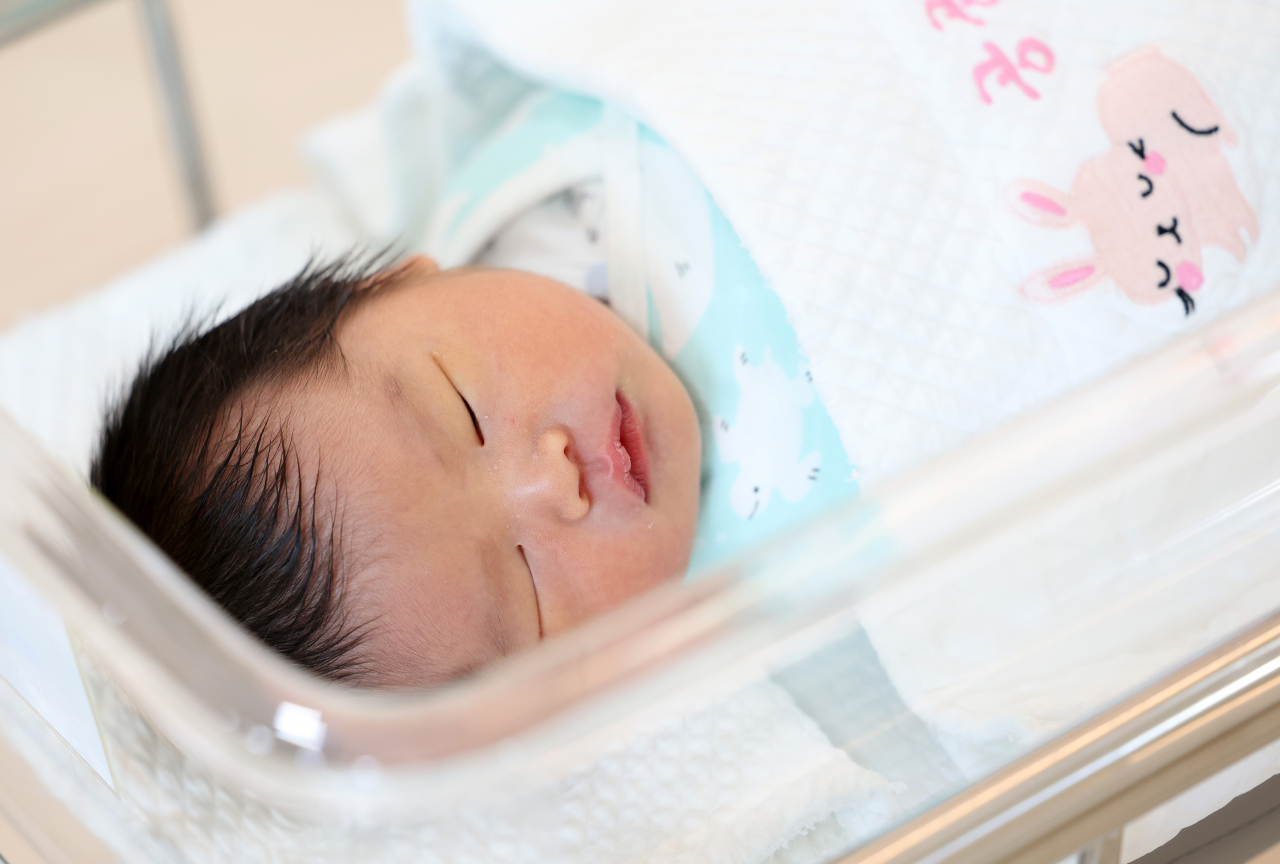 |
The fifth child of Lim Seong-gil and Lee A-reum sleeps in a public postnatal care center in Yanggu County, Gangwon Province, four days after being born on Dec. 4. (Yonhap) |
South Korea’s birth rate reached an all-time low in the January to October period this year, setting off further alarm about the nation’s demographic trends.
According to Statistics Korea on Friday, the accumulated number of babies born in the first three quarters stood at 177,000, the lowest figure recorded since the government began collecting data in 1981.
The birth rate, which stood at 657,000 during the first three quarters of 1981, plunged to around 300,000 in 2002 and further decreased to approximately 278,000 in 2017. Last year, the figure declined to below 200,000.
The nation’s total fertility rate, referring to the average number of children a woman is expected to have, also hit a record low in 2023. During the first three quarters of this year, the rate shrank to 0.7, marking a decrease of 0.1 from the same period last year.
Given the trend of declining birth rates toward the end of the year, this year’s total fertility rate is expected to further decrease to 0.6.
Statistics Korea previously predicted that the nation will experience its lowest birth rate next year, followed by a rebound in subsequent years.
In 2021, the government anticipated that the nation’s total fertility rate would fall to 0.7, the lowest figure, by 2024, and projected a rebound to 1.0 by 2031 and 1.21 by 2046.






![[Today’s K-pop] Blackpink’s Jennie, Lisa invited to Coachella as solo acts](http://res.heraldm.com/phpwas/restmb_idxmake.php?idx=644&simg=/content/image/2024/11/21/20241121050099_0.jpg)
